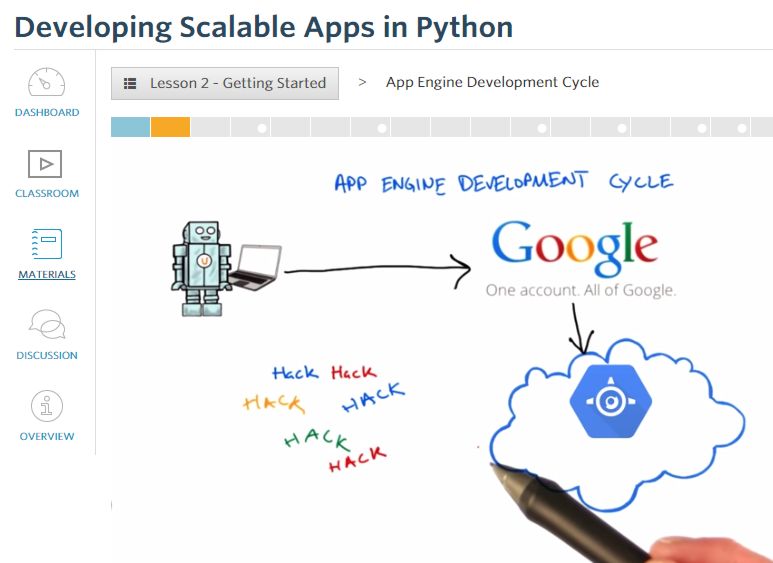| New Google Udacity Courses |
| Written by Sue Gee |
| Monday, 27 April 2015 |
|
Udacity has announced three new courses from Google on responsive images, browser rendering, and developing scalable apps in Python. You can start them immediately as free self-paced courses and two of them are also included in Udacity Nanodegrees. Responsive design is currently a hot topic. In Responsive Images students will learn how to work with images on the modern web, to ensure that images look great and load quickly on any device. It is billed as a 2-week course - around 12 hours in total at Intermediate level for those who are already comfortable working with simple HTML, CSS and JavaScript and have experience with image creation and processing tools. The reasons for taking it our outlined in this video.
Developing Scalable Apps with Python is part of the Full Stack Web Developr Nanodegree and like the existing course on which it is modelled, Developing Scalable Apps with Google App Engine, looks at writing scalable application in the Google Cloud. Pitched at Advanced level it is expected to take around 6 weeks (around 40 hours) with most of the time being spent developing an application for organizing conferences which is introduced in Lesson 2. In Lesson 1, which can be viewed in less than an hour, Google's Magnus Hyttsen provides an overview of cloud computing, introduces the idea of Infrastructure as a Service, and the advantages that App Engine offers. It includes an interview with Udacity CTO Mike Sokolsky who explains why Udacity uses App Engine to achieve the scalability it needs to cater for hundreds of thousand of students.
Prerequisites for this course include being fairly comfortable programming in Python, preferably with some experience developing web applications and working with databases for at least a year. As you will be developing the backend of a sample app, you don’t have to worry about HTML or JavaScript. The course uses Python 2.7, Maven and Eclipse and Sublime Text is the recommended text editor. In the third new course, Browser Rendering Optimization, Google performance guru Paul Lewis helps you create web apps that maintain 60 frames per second performance. This is an Advanced course that is expected to take students around 1 month (25 hours). In its first lesson you learn about the problem of "jank" which is what you'll be trying to eliminate from an unusable sample news aggregator app as you work through the course. Jank is any stuttering, juddering or just plain halting that users see when a site or app isn't keeping up with the refresh rate. Jank is the result of frames taking too long for a browser to make, and it negatively impacts your users and how they experience your site or app. Prerequisites for this course are:
More InformationDeveloping Scalable Apps with Python Browser Rendering Optimization Related ArticlesTraining To Advance Your Career Become A Web Developer With Udacity To be informed about new articles on I Programmer, install the I Programmer Toolbar, subscribe to the RSS feed, follow us on, Twitter, Facebook, Google+ or Linkedin, or sign up for our weekly newsletter.
Comments
or email your comment to: comments@i-programmer.info |
| Last Updated ( Monday, 27 April 2015 ) |




